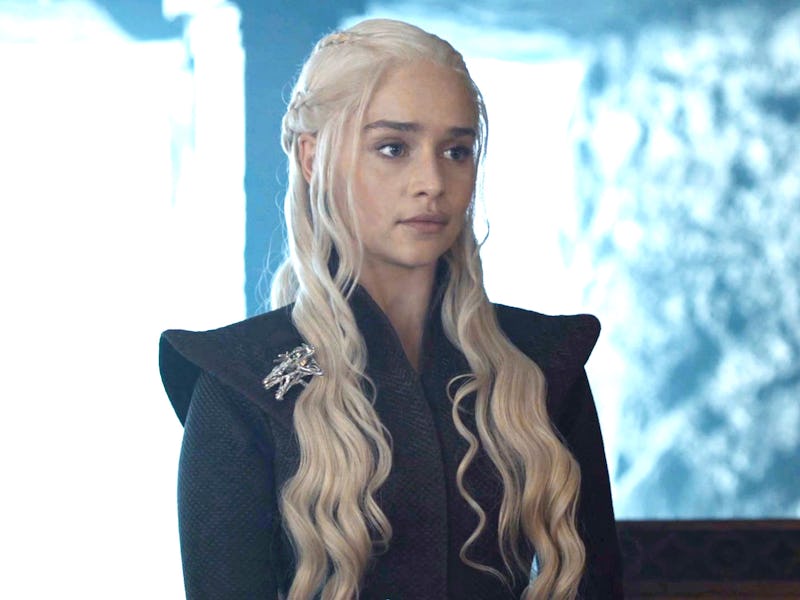'Game of Thrones' Linguist Explains Latest Grammar Twist
Linguist David J. Peterson breaks down gender in High Valyrian

Season 7 of Game of Thrones presents a plot twist that isn’t triggered by a surprise beheading or an unexpected betrayal — but by grammar.
In the second episode of Season 7, “Stormborn”, Daenerys Targaryen’s translator and right-hand woman Missandei blows a hole in Melisandre’s favorite cryptic prophecy. The Prince that Was Promised — the figure who will save the world from the Long Night and bring about the dawn — doesn’t have to be a prince.
“Forgive me, but your translation is not quite accurate,” Missandei tells Daenerys, after Dany points out that she is not a prince. “That noun has no gender in High Valyrian. The proper translation for that prophecy would be, ‘the prince or princess who was promised will bring the dawn.’”
David J. Peterson, the language creator who constructed the Dothraki and Valyrian languages you hear on Game of Thrones, told Inverse that showrunners David Benioff and D.B. Weiss changed the original script for “Stormborn” at his behest.
“The original wording was not something that I liked,” he said. “It was implying that there was no grammatical gender at all in Valyrian. I begged them to change it and they did.”
Missandei lays down the grammar law in 'Game of Thrones'
About the concept of “grammatical gender,” Peterson described it as a tangled issue.
“Something that’s confusing about this issue is how the word ‘gender’ is used in English now,” he explained. “Originally gender was basically just a grammatical issue. You’d have gender to talk about grammar and use sex to talk about man versus woman. So English is a language that doesn’t have grammatical gender at all. But obviously ‘man’ and ‘woman’ are sex-based terms.”
About High Valyrian, he explained that the language has four grammatical genders: Lunar, Solar, Terrestrial, and Aquatic.
“The word for prince or princess is derived from a root having to do with royalty,” Peterson said. “Maybe a more accurate translation would be heir – heir to a king or queen. ‘Heir’ is not sex-based. That’s basically what you have with the word that is translated into prince or princess in English.”
Melisandre in 'Stormborn'
Peterson said that after “Stormborn” aired, many fans have been asking him why Daenerys didn’t know that the noun for prince has no gender, if she can speak Valyrian. Peterson thinks it’s logical that Daenerys would not think about it.
“It’s kind of like the word doctor,” he said. “There’s this famous riddle in English where a man gets into a car accident and his father brings him in to the surgeon, and the surgeon says, ‘I can’t operate on this man, he’s my son.’ They say ‘how is that possible?’ It’s supposed to be this crazy brain teaser and it turns out the surgeon was the mother. It’s playing on the assumption that when an English speaker hears the word doctor or surgeon, it automatically conjures up a man — even though there’s nothing in the term that suggests it has to be a man.”
Game of Thrones Season 7 is currently airing Sunday nights on HBO.